Supernatural University: Spectral Speculations

I thought “Death’s Door” was a magnificent piece of work, and ranks right up there with “Abandon All Hope” as one of the best mid-season finales of the series. And while I grieve profoundly for Bobby’s death, the story around it was solid and very fitting, and did him proud. Special kudos to Jim Beaver for an award-worthy, totally honest performance, and to the entire company for supporting him in it.
Although I do believe Bobby is well and truly dead, this is Supernatural, after all, and I strongly suspect we haven’t seen the last of him. Sam and Dean have died more than once, but are still walking, and even Bobby came back from the dead before, raised by Castiel after Lucifer killed him in “Swan Song.” Castiel himself was brought back, evidently by God, at least twice after having been destroyed by more powerful archangels, as described or seen in “Sympathy For the Devil” and “Swan Song” – and where there’s room for one wayward angel, I’m certain there’s room for one almost-father and heavenly hero. I think there are some excellent story opportunities that could involve Bobby’s eventual return, and I thought I’d explore one here. Welcome to a speculative fiction, cosmology, and mythology class at my little Supernatural University, in which I look to the show’s established ghost and spirit lore to ask questions about where the writers could possibly take Bobby’s story in the future, based on elements from the past!
Here’s my up-front disclaimer: I have absolutely no affiliation with the show apart from loving it, and I have no idea where this season is going to go. Everything in this little article is my own overactive imagination running down avenues I’ve dreamed up. The show may – and most likely will! – take an entirely different road, and that’s perfectly fine with me; I can’t wait to see where we wind up and how we’ll get there. I’m definitely along for the ride.
The origin of this article, however, was a recurring theme in “Death’s Door”: Bobby having to choose the outcome of his inevitable death, either to go with the Reaper and be ushered to his soul’s proper destination – presumably Heaven, because no way would Bobby merit Hell! – or to deny the Reaper and remain as a spirit, a ghost, on Earth. That choice was presented to Bobby by the Reaper in very stark terms at least three distinct times during the episode, and the question of how Bobby would choose provided all the suspense of the episode’s ending.

As that choice kept being raised, however, it occurred to me that Bobby knew a lot more about that decision than any other character we’ve ever seen confronting it, and I began to wonder just how much of a difference all that knowledge could make in the way that choice played out. My thesis for this class boils down to this: I think knowing the rules in advance might entirely change both the nature and fate of a soul choosing to remain a ghost or spirit, and it’s not as cut-and-dried a choice as Reapers have made it out to be. I have to wonder whether Bobby – and the writers – may be planning to explore just how much of a difference understanding the rules could make.
Playing By The Rules
The conventional wisdom about ghosts – which we’ve heard from Tessa, Bobby’s Reaper, Rufus, and even Sam and Dean, among others – is that, no matter what prompted them to remain as spirits in the first place, virtually all of them eventually wind up going mad and violent and need to be put down by hunters. I’m going to start by saying I don’t believe that’s necessarily the case, based on situations we’ve already seen, and advocate the possibility of a very different end for someone, like Bobby, who understood fully and from the beginning how to manipulate the results of the decision to remain on Earth as a spirit.
Among the very first things we learned in Supernatural was that ghosts were bound by strict rules making most of their behavior reasonably predictable by hunters. The basics boiled down to ghosts most usually being trapped in the places where they died or where their physical remains were buried, or being linked to some specific physical object. Eventually – according to the lore, anyway – ghosts were all driven mad presumably by outliving everyone who mattered to them and being unable to physically affect the real world in ways that mattered to the people they cared about. Because of that, most ghosts we met were reduced over time to just the single driving force that had kept them in the world in the first place – frequently revenge, guilt, hate, or spite, like H.H. Holmes in No Exit or the psychotic child spirits in The Real Ghostbusters – sacrificing everything else that had made them individual, human, multi-faceted, and unique.

From the pilot, we learned angry spirits were most often born from violent deaths, couldn’t cross protective lines of salt, could be temporarily dispersed by iron or salt, and could be permanently banished by salting and burning their bones. We learned some of them – like Constance Welch, a woman in white – could make themselves visible to ordinary people and even affect the physical world around them, from taking over the Impala to reaching into Sam’s chest and squeezing his heart to moving furniture with her mind to pin the brothers in place. We saw more of a ghost’s abilities to affect the physical world in Dead In The Water, when the spirit of a little boy reached out for vengeance through avenues connected to the lake in which he drowned, and learned that satisfying the reason a spirit remained behind could also put it to rest.
As early as Bloody Mary, we learned even a spirit whose body had been cremated could be linked to a physical object – in this case, the mirror in front of which she’d died, on which she’d tried to write her killer’s name – and could travel through other reflective materials close to someone who had summoned her, if they were within reasonable geographic range of the original mirror. Hook Man introduced the knowledge that a spirit could be temporarily dispersed by salt shot, but also linked to something other than its physical remains; in that case, to the silver that had formed the ghost’s hook hand, even after the metal had been melted once and made into different forms. Asylum‘s patients, who tried to provide clues to people to stop the mad doctor’s ghost, showed that not all ghosts were violent. Route 666 established that a ghost could even animate and temporarily give physical substance to the form of a non-living thing – in that case, the template of the dead man’s truck – which continued the spirit’s terror campaign even after the man’s physical remains had been burned, and was banished only by being seduced into crossing over holy ground. Provenance further played with the relationship of spirits to the physical world by illustrating ghosts who both tampered with and were somehow linked to a physical painting – haunted paintings traditionally being haunted by their subjects – and reminded us that spirits could also remain attached to the world despite cremation through a portion of their physical remains, such as hair placed on a doll. Those themes of ghosts being connected to physical objects were further expanded over time to include ghosts potentially linked to blood shed in a cell in Folsom Prison Blues, to a hand of glory chopped off after a hanging in Red Sky At Morning, to body parts moved to a house in Ghostfacers!, to a lock of hair preserved in a Bible in After School Special, to skin cells remaining in a workman’s glove in It’s A Terrible Life, and even to a transplanted kidney in Mannequin 3: The Reckoning. After School Special also introduced a ghost having the ability to possess a living person the same way a demon could.
Tessa laid out the terms baldly for Dean during In My Time Of Dying, telling him “Well, like you said: there’s always a choice. I can’t make you come with me. But you’re not getting back in your body. And that’s just facts. So, yes – you can stay. You’ll stay here for years; disembodied, scared, and over the decades, it’ll probably drive you mad. Maybe you’ll even get violent. Dean – how do you think angry spirits are born? They can’t let go and they can’t move on, and you’re about to become one. The same thing you hunt.†She also maintained it was a one-time-only deal: “Moment of truth. No changing your mind later. So: what’s it going to be?â€
As I’ve pointed out in articles before, however, that last assertion wasn’t truly the case. We’ve seen at least two occasions when a spirit who’d obviously initially refused to accompany a Reaper got a second opportunity to choose, and vanished peacefully into light: Father Gregory in Houses Of The Holy, and Molly in Roadkill. For that matter, we could deduce from Home that Mary Winchester had similarly refused Reaper escort and remained behind in her home after death, departing from Earth only when she used the opportunity to sacrifice herself in order to save her sons from a poltergeist, and we saw John vanish smiling into light after escaping Hell and saving Dean in All Hell Breaks Loose, Part 2.
I think Mary, Molly, and even the death omen Claire from The Usual Suspects demonstrate that not all spirits are automatically doomed to go insane and become something other than who they were in soul and life. True, most of the ghosts we’ve seen became only the obsessed fraction of themselves that most adamantly refused to accompany a Reaper upon their deaths: just think of farmer Greeley in Roadkill, who we learned had been a gentle and loving man who’d written eloquently of his love to his wife, but became nothing more than a brutal torturer bent on revenge on his accidental killer after his death; or gentle giant Luther of Yellow Fever, who killed others using the same terror he’d experienced when he’d been unjustly dragged to death behind a truck. Mary, Claire, and Molly, on the other hand, remained behind because they either wanted to protect others or express their love for them, and I think the purity of that motive, while it still bound them to a myopically focused, one-dimensional ghost existence, also helped protect them from fading into the violent insanity we normally associate with ghosts in Supernatural. I think it also played a key role in each of them ultimately surrendering their existence as a spirit once their purpose had been achieved; we have ample reason to believe they each passed on to where they belonged after the haunting stories we saw, although we never actually saw any of them happily in Heaven.
Both we and the Winchesters learned in Death Takes A Holiday that fresh ghosts had no innate ability to affect the material world, but could learn, particularly with sufficient motivation and with help from another ghost who already knew the ropes, how to focus the power of ghostly thought and will to make things happen in the real world. For an additional example, we earlier saw the intern Corbett in Ghostfacers! initially unable to do more than appear as an echo reliving his death, but once made aware of his situation by Ed, successfully attack the ghost of Daggett to save his companions. We saw Dean himself discover In My Time Of Dying – although he didn’t remember it for years afterward – that while he as a newly disembodied spirit mostly couldn’t affect or be perceived by the material world, he could move things if he focused on them hard enough. I think this learning curve may explain both why it usually took some time after their deaths for most ghosts – who didn’t generally have immediate help from others – to manifest in the real world in any meaningful fashion, and why some were more prone to insanity than others – insanity, I believe, most often being linked to long-term frustration at not being able to accomplish the things they most wanted to do, to follow through on their initial choice to refuse to accompany a Reaper.
Summoned spirits presented a departure from all the accustomed rules on ghosts. I submit that wasn’t a mistake, but was due instead to the power of the summoning spell that drew back the spirits of souls who hadn’t chosen to become ghosts. Specific examples include the Hollywood ghosts compelled to do the frustrated writer’s bidding in Hollywood Babylon; all the spirits forced to rise and kill hunters under the compulsion of the Raising of the Witnesses from Are You There, God? It’s Me, Dean Winchester; and the return of Jo and others at the behest of Osiris in Defending Your Life. In all of those circumstances, the ghosts who were brought back had an immediate, full understanding of what they could accomplish and how to perform effectively in the material world, something other ghosts apparently took years to learn, if they ever did. Jo in particular betrayed what a hunter could do as a ghost with full knowledge of ghostly abilities when she used her ghostly cold to shatter a glass window and cause a breeze to break a protective salt circle she wouldn’t otherwise have been able to pass.

Breaking All The Rules
You might well ask what this all has to do with my ideas on what might happen with Bobby following his death by gunshot to the head in Death’s Door. I’m thinking we might see an entirely new take on a ghost that nonetheless builds on all that has gone before, in the person of Bobby taking on the afterlife as his self-contained and complete soul – not just some one-dimensional remnant – remains on Earth after his body’s death and likely cremation.
I’m going to start by saying that, had Bobby died three or even two years ago, I suspect he’d never even have considered there being a choice to make. Bobby was nothing if not ruthlessly practical, and knowing the typical fate of ghosts, I doubt he’d even have considered for a moment becoming one, knowing he’d likely have forced the brothers to hunt and destroy him. Had he died before this, I think he’d have gone with his Reaper willingly, once he’d finished fighting to pass on the information he felt it critical for the boys to know.
Now, however, I think the situation is very different. Through Dean’s and Sam’s firsthand descriptions, Bobby knows quite well what Heaven and Hell are like in Supernatural‘s cosmology, and understands that souls are nothing more in the great scheme of things than power sources to fuel their destinations. To my mind, anyway, that removes a lot of the incentive for seeking to go to Heaven. I suspect Bobby’s reaction to learning of Heaven being Memorex – simply reliving favorite memories with no real substance – would be much the same as Dean’s dismissive attitude on display in Dark Side Of The Moon. I think Bobby would rather remain in connection with Earth and his adopted sons, if he had any way to ensure he’d remain himself and sane in close proximity to them and possibly be able to help them sometimes. And if he wound up in Heaven after all, he’d definitely be hanging out with Ash.
Here’s where I think Bobby’s knowledge and understanding might make all the difference in both the material and immaterial world: I think Bobby might be able to remain himself, sane, and effective even in spirit form precisely because he understands what, how, and why he could do certain things as a ghost, and might be able to arrange his post-death existence accordingly. And if the writers intend to explore that idea, I believe we could see Bobby again in the not-too-distant future and for a long, long time to come. Part of me earnestly hopes that may be the case, because I love Bobby in his own right, grieve for what his loss means to the Winchester brothers, and personally want to be able to continue to see Jim Beaver excelling at his acting craft (and getting paid!) bringing Bobby to vivid life on screen. Another part of me wants Bobby’s loss and absence to stick simply because I wouldn’t want to see his death and sacrifice cheapened by an easy out … but I don’t think a ghost-Bobby would necessarily constitute an easy out.
Whatever your own personal preferences, just take a moment here to think along with me and see possibilities through my eyes. I dare to hope you might enjoy the experience, at least a little.
For the sake of this argument, let’s suppose Bobby would choose to deny the Reaper and remain on Earth as a spirit after his physical death, considering that existence more meaningful than simply reliving memories as a soul in Heaven. How might Bobby make that work and avoid the trap of ghost insanity that would force other hunters – particularly the brothers – to destroy him?
For this exercise, I’m going to assume the brothers shared their various Heaven, Hell, and ghost experiences with Bobby so he had the same knowledge we do of Supernatural‘s cosmology and of events in ghost-related episodes, in addition to whatever other lore or personal information he may have amassed. Bobby was a meticulous and methodical researcher who created contingency plans to deal with potential threats: just look at his construction of the panic room, first introduced in Are You There God? It’s Me, Dean Winchester; his addition after Dead Men Don’t Wear Plaid of a trapdoor in the floor just outside the closet refuge where he and Dean had been trapped by zombies, which he later used to escape from soulless Sam in Appointment In Samarra; and his foresight in making and distributing to safe caches copies of his essential research materials, which we learned about first in Let It Bleed and more fully in The Girl Next Door. Bobby made practical use of virtually every piece of information he uncovered in his life, learning caution from experience and linking concepts together into physical constructs he could use in hunting.

I think it would have been perfectly in character for Bobby to have studied ghost lore to try and figure out how and why certain ghosts seemed bound to things – like a mirror, a silver hook hand, or a painting – rather than just to the place where they died or to their physical remains. In the case of Bloody Mary, a reasonable explanation could have been that she was focused so totally on the mirror as she died trying to write her killer’s name on it that her spirit imbued the glass. The Hook Man had considered the silver hook a part of his body. The best clue we were given about why the ghosts in Provenance were invested in and traveled with the family portrait was the suggestion that Isaiah Merchant, dying and knowing he would be blamed for the killings committed by his adopted daughter, had been desperate for a way to warn people about her murderous nature, and focused his attention on changing the details of the family painting. I’m not clear why the little girl herself was similarly linked, unless she was aware of what he was doing and was fully as committed to stopping him.
Either way, those cases in particular suggested that a strong enough focus by a dying soul on a personally important physical object could be enough to anchor the ghost’s spirit to the object, rather than leaving it trapped in its place of death or just tethered to its physical remains. If that’s the case, and if Bobby drew the same conclusions I did, I think it reasonable that, if he chose to refuse the Reaper even as he died, he might have consciously focused the last of his will and all of his essence on an object both meaningful to him and highly likely to remain in close proximity to Dean and Sam. If he did that, he might remain a viable ghost even if the brothers gave his body a proper hunter’s cremation, and his link to something also linked to them could ensure that he could stay with them, not be trapped and alone in a place they left behind. My two top suggestions for a suitable vessel for Bobby to haunt would include (1) his personal hunter’s journal – remember Dean retrieving it from the mantelpiece hiding place in The End? – which I’m betting would have been with Bobby in the van, not in his destroyed house; or even (2) – wait for it – the Impala. If the object had to be physically close to him when he died, the journal would be the more likely, and I believe Dean would keep it as close as he has always kept John’s, but there would be spiritual poetry in Bobby investing the car, which has always been a symbol of family for Dean and which he had helped Dean rebuild more than once.
Whatever the object he used as a focus, making it something close to the brothers would help bypass two of what I think are the major contributors to the insanity that usually afflicts ghosts: Bobby wouldn’t be lonely, isolated from the people he loved, and wouldn’t be trapped in one place, helpless to move around or make a difference.
Given that Bobby’s focus in remaining on Earth would have been a consciously positive one – loving and wanting to help his boys – rather than the typical spur-of-the-moment choice born of fear, pain, anger, hate, or the desire for revenge, I think the emotions he carried into his afterlife could also help insulate him from a ghost’s typical tendency to narrow into a single obsessive drive, just one small piece of a total human soul. I further think that his direct experience of what ghosts could accomplish in the physical world, combined with his knowledge of what Dean and Sam learned in Death Takes A Holiday about how to manipulate matter while in spirit form, would give him a distinct advantage over most new ghosts and dramatically shorten his learning curve on becoming effective in the material world, eliminating a lot of the practical limitations and attendant frustration that seemed to drive other ghosts over the edge.
Mind you, I don’t think a ghost existence would be entirely rosy or without problems for Bobby. From what we’ve seen of ghosts and souls, there seems to be a definite bias in favor of souls that don’t go to their appropriate destination, whether Heaven or Hell, either immediately forfeiting or gradually losing aspects of themselves over time, perhaps because they have to expend energy from their own essence in order to remain where they don’t belong. It may be that as time progresses, a ghost naturally begins to lose dimension until it becomes nothing more than the most basic drive within itself that refused to accompany the Reaper in the first place. If that’s the case, then it would be true that every ghost would eventually go mad, becoming something much less than the complete person had been, unless – as Father Gregory and Molly seemingly did – the ghost found a second opportunity to choose before that process was complete, and this time went on to where it truly belonged. I would hate to see Bobby diminished that way over time, if he chose to and succeeded in remaining now as a ghost; I think it would feel exactly like watching a parent being stolen away by Alzheimer’s, something I personally know all too well. Based on all we’ve seen across the last six and a half years, however, that’s exactly the kind of painful twist I think would fit the tradition of the Supernatural writers’ room. And that’s part of what makes me think this really could happen, even though I also think it’s not truly likely. (Can you tell I’m REALLY conflicted in terms of what I desire?)
In any case, if Bobby indeed chose to become a ghost rather than going with the Reaper, I wouldn’t expect him to appear on-screen to the brothers any time soon. First off, while I do believe he would have a major advantage over a run-of-the-mill new ghost in terms of learning the effectiveness ropes at record speed, I also think he would still have at least some learning curve to surmount to convert his currently theoretical knowledge into actual practice of effectively affecting the physical world. Second, understanding so thoroughly how they think, there’s no way Bobby would choose to appear to Dean or Sam without first laying the groundwork to allow them to accept him without feeling the need to hunt him down and eradicate him. If I thought all this might really happen, I would look for Bobby to manifest at first in very small things for a while: the unexplained sound that alerts one of the brothers to an enemy attempting a sneak attack; the breeze rearranging papers on a desk to uncover the important clue; the startling flash of light that pulls Sam out of a Hellucination; or the car (we know Dean won’t remain apart from his beloved Baby for long!) either braking sharply or refusing to start just long enough to prevent the brothers from being hurt or caught by Leviathan. I would look for Bobby in the still, small voice, exactly as I would look for God; I would expect circumstantial evidence of a guardian spirit benevolently watching out for them and intervening subtly on their behalf long before we would see the image of Bobby smiling wryly and lovingly calling the boys “Idjits†to their faces.

Perhaps my Supernatural University classroom has been infected with sentimentality at this holiday season, the benevolent ghosts of Dickens’ A Christmas Carol taking over from the usually blood-spattered sensibilities of Supernatural, the television series. If so, I welcome the invasion this time. I would hate to bid a permanent farewell to Bobby and to Jim Beaver, who portrays him so very honestly and well. And in this holiday season, I am inclined to believe in miracles and to hope for the best for all of us, real and fictional characters alike.
Happy Hanukkah, Good Solstice, Merry Christmas, Joyous Kwanzaa, and Blessed Whatever-You-Celebrate to all the world, with special love and best wishes to the fans, crew, writers, and cast of Supernatural. May all your wishes come true – but only in ways that benefit you, no legal fairy fine print attached.
Peace and joy to all, and to all, a good night!




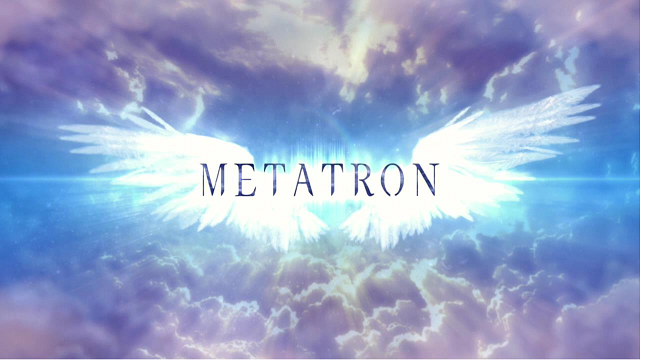
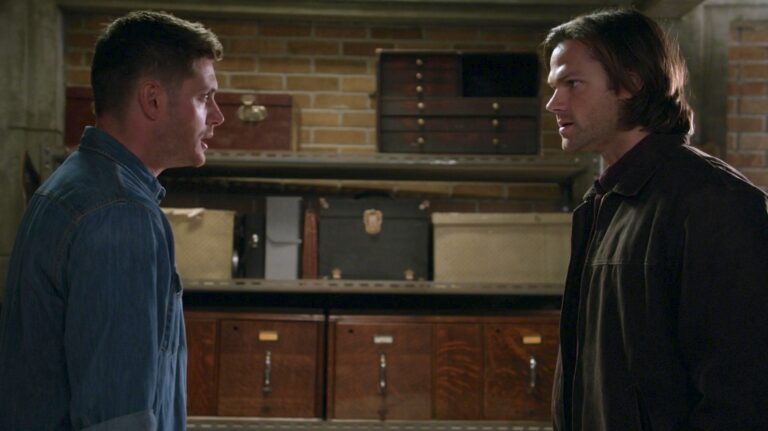
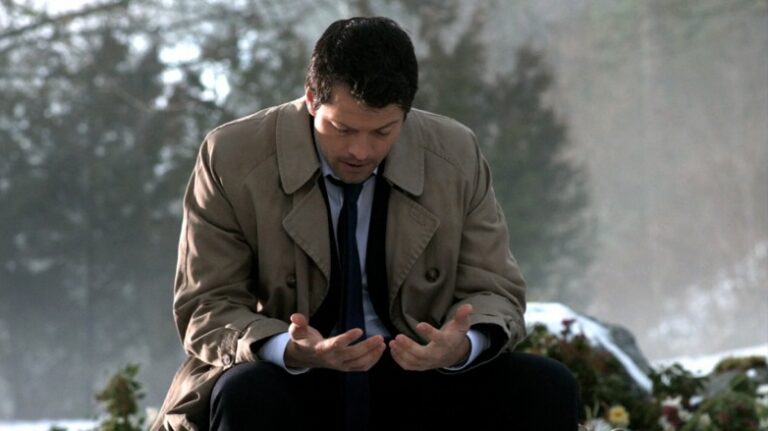
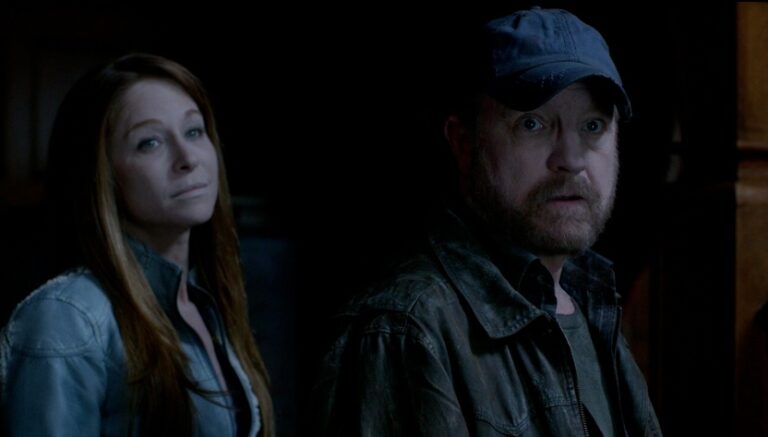
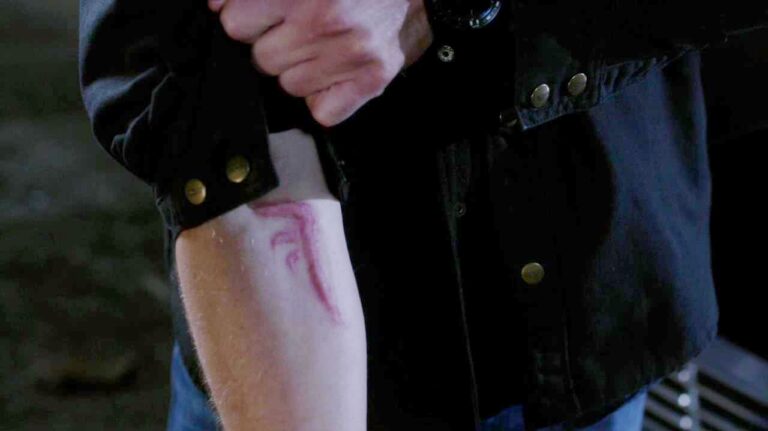
Thank you.
I had thought much of this, but lacking the comprehensive detail you have shared. I do think that Bobby drank Dean’s beer, and knocked the address book to the ground to reveal the contact that Dean needed.
I hope to see more of this.
Again, thank you.